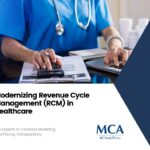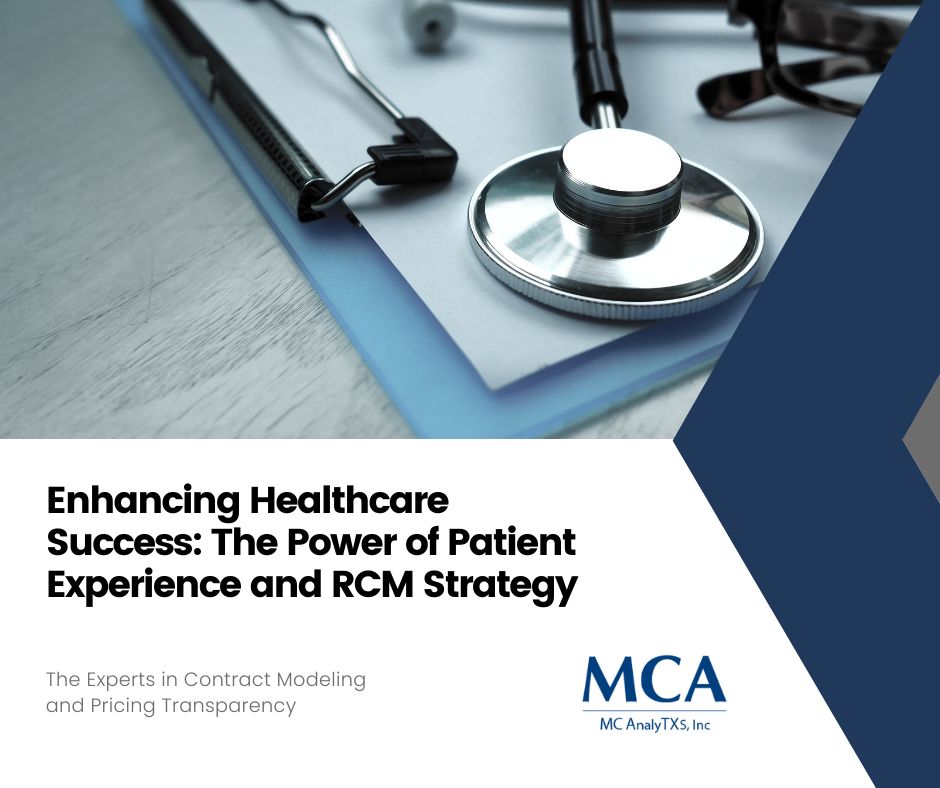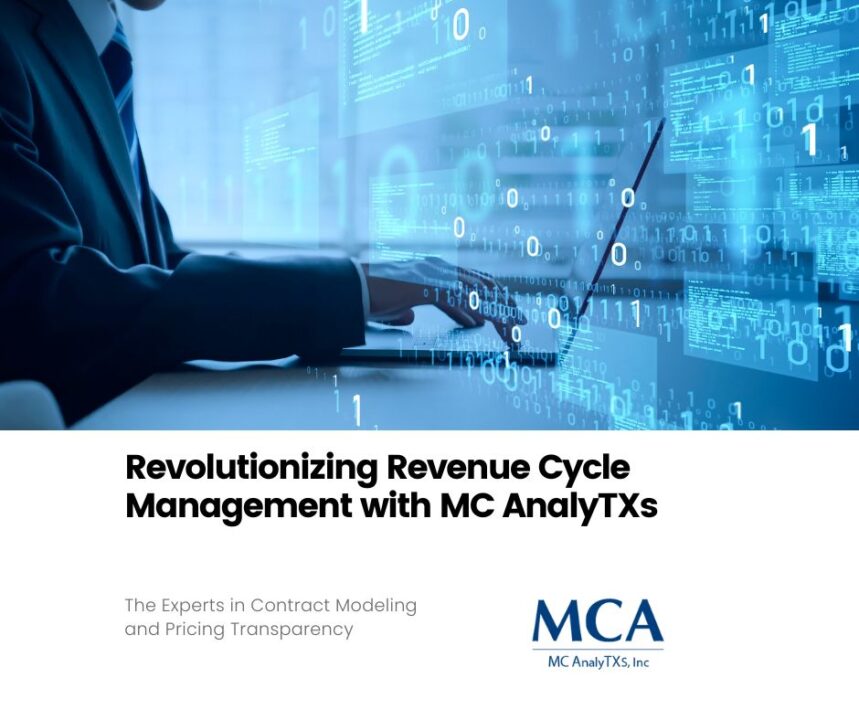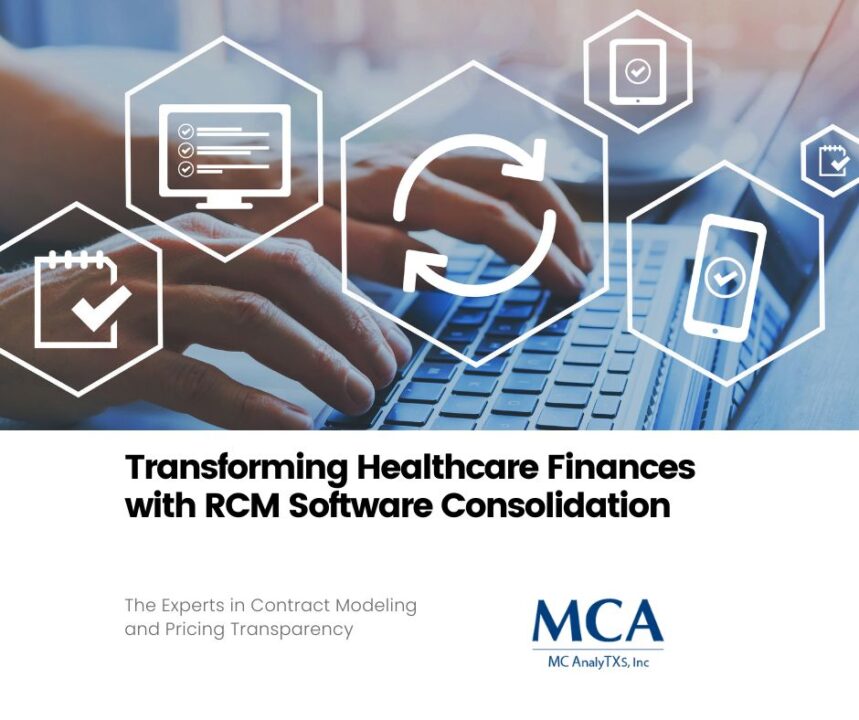
Value-Based Purchasing and Alternative Payment Models in Healthcare
March 15, 2024
Modernizing Revenue Cycle Management (RCM) in Healthcare
March 21, 2024In the dynamic world of healthcare, success is not solely measured by the proficiency of medical procedures or the reputation of physicians. Instead, a nuanced understanding and comprehensive management of the patient’s experience—paired with a robust revenue cycle management (RCM) strategy—truly embody the essence of modern healthcare triumph. This article will dissect the intricate connection between patient experience and RCM and shed light on why these elements are indispensable in the healthcare landscape today.
Understanding the Significance of Patient Experience
The patient experience encompasses every aspect of a person’s encounter with the healthcare system, including care from providers, support staff, and the environment in which healthcare occurs. This experience not only shapes patient satisfaction but also influences health outcomes and loyalty. High-quality patient experiences are characterized by empathy, clear communication, and personalized care, leading to better health results and stronger patient-provider relationships.
Impact on Patient Satisfaction and Outcomes
Satisfactory patient experiences can drastically improve patient satisfaction scores. This metric is now inextricably linked to hospital reimbursements through programs such as HCAHPS (Hospital Consumer Assessment of Healthcare Providers and Systems). Enhanced satisfaction isn’t merely a feel-good factor; it contributes significantly to patient adherence to medical advice, which, in turn, improves clinical outcomes and overall health status.
Key Elements of a Stellar Patient Experience
A stellar patient experience integrates various essential elements, including:
- Access to care and ease of scheduling
- A healthcare environment focused on patient safety and comfort
- Provider empathy and clear communication
- Active patient engagement and collaboration in their healthcare journeys
Exploring the Role of RCM Strategy in Healthcare
Revenue Cycle Management (RCM) refers to the financial process—or “cycle”—involving the administration of a patient’s account from the creation of a claim to the receipt of payment. RCM encompasses the management of claims, payment, and revenue generation, and is a critical part of any healthcare provider’s operations.
Importance of an Effective RCM Strategy for Financial Health
An effective RCM strategy is paramount for the financial health of any healthcare entity, ensuring the timely billing and collection of patient payments and insurance reimbursements. With healthcare’s shifting financial landscape, which includes rising patient financial responsibility and complex reimbursement structures, RCM efficiency has become more crucial than ever for maintaining a sustainable revenue stream.
Link Between RCM Efficiency and Patient Experience
The salient link between RCM and patient experience lies in billing and administrative tasks. A smooth RCM process minimizes billing errors, avoids overcharging, and simplifies payment for patients, which can lead to greater satisfaction. Clarity in billing, transparent financial discussions, and easy payment options further enhance the overall patient experience, fostering a system of trust and satisfaction.
Integration of Patient Experience and RCM Strategy
Integrating these two components can create a healthcare system that is financially strong and patient-centered. A seamless patient experience optimizes RCM outcomes by reducing denied claims and enhancing patient payment compliance.
How a Seamless Patient Experience Enhances RCM Outcomes
A seamless patient experience results in more accurate patient information, which reduces claim denials and shortens the revenue cycle. On the patient side, when experience is positive, patients are more likely to pay their bills in a timely manner, thus improving financial outcomes.
Strategies for Aligning Patient-Focused Care with Revenue Optimization
Aligning patient-focused care with RCM optimization involves training staff on the importance of RCM in patient care, using technology to personalize the financial experience, and streamlining billing processes to make them less intrusive on the patient’s overall journey to better health.
Challenges and Solutions for Seamless Integration
Despite the clear benefits of integrating patient experience with RCM, many healthcare providers face challenges in doing so. These obstacles include resistance to change, lack of interdepartmental collaboration, and the inherent complexity of healthcare operations. However, innovative solutions and best practices can help overcome these hurdles.
Common obstacles can range from outdated billing systems that don’t support a patient-focused approach to a lack of data sharing between clinical and financial departments, inhibiting a comprehensive view of the patient’s experience.
Innovative Solutions and Best Practices
Innovative solutions involve leveraging technology for a more fluid patient financial experience and implementing cross-departmental communication strategies to ensure a holistic approach to patient care.
Conclusion
The interplay between patient experience and RCM is nuanced yet incredibly powerful. By ensuring that the patient’s healthcare journey is not only medically sound but also financially transparent and supportive, healthcare providers can truly excel in the current competitive and consumer-driven healthcare environment.
The necessity to prioritize both patient experience and RCM is clear. Organizations that master this balance will see improved financial performance and create a patient-focused environment that garners loyalty and trust, essential in an era where patient choice and engagement are more influential than ever. For healthcare providers and administrators, integrating these two elements is not just a strategic move—it’s a mission-critical imperative for success and sustainability in the healthcare field.





